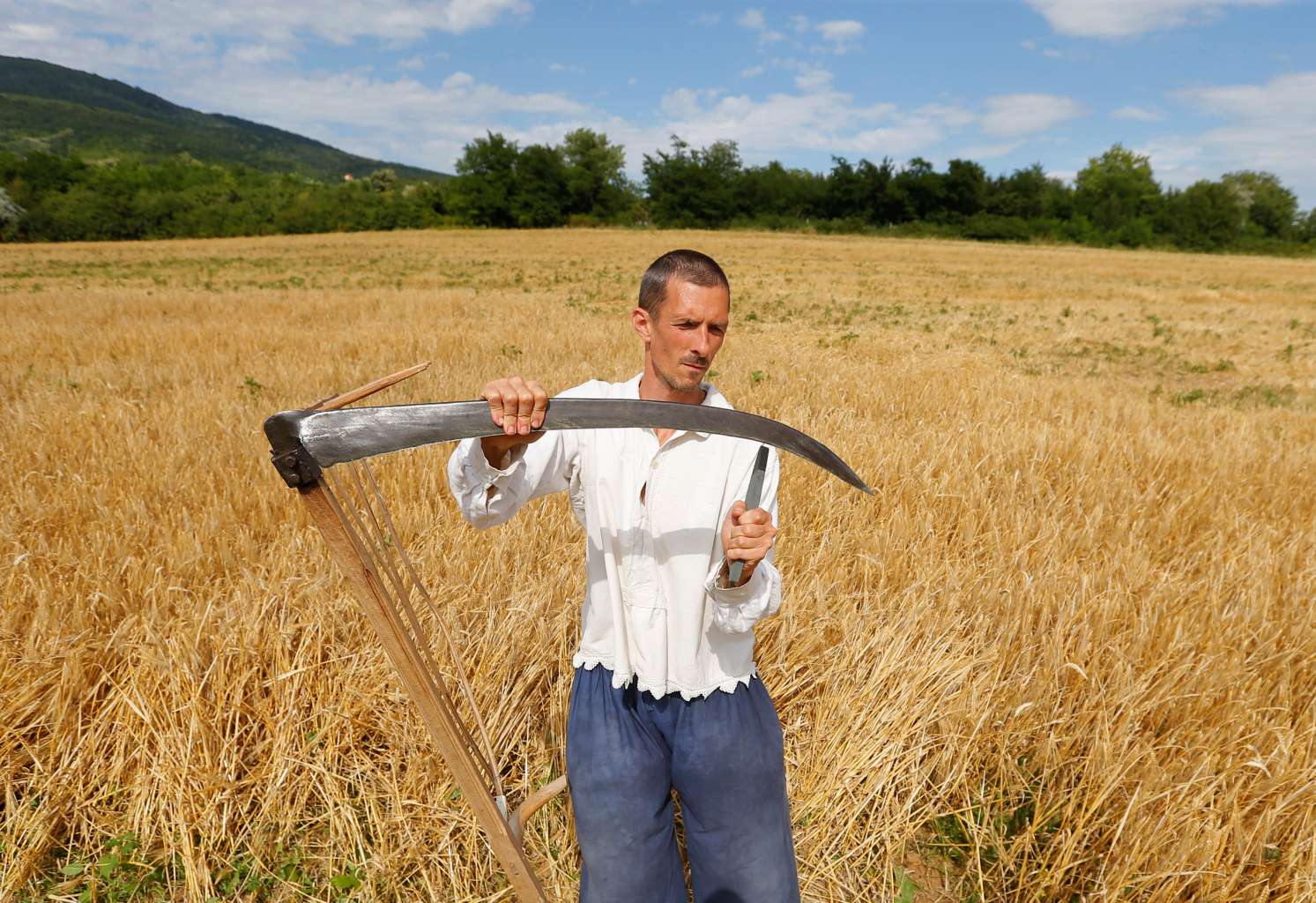Making hay at the world scything championships
Sign up now: Get ST's newsletters delivered to your inbox

A man sharpens his scythe during a harvest festival in Hosszuheteny, Hungary in July (2016). REUTERS/Laszlo Balogh Copyright: REUTERS
PHOTO: REUTERS
Follow topic:
WIZNA, Poland (AFP) - Some of the world's top grass cutters swung into action in Poland this weekend for the 15th annual scything championships, bringing a competitive edge - and some sporting fun - to the traditional rural practice.
Farmers, forest rangers and ecologists were among those who gathered Saturday in a vast marshland area in the Biebrza national park in northeastern Poland.
"Yes, you can call it a sport. It's a lot of fun and above all the opportunity to meet colleagues from other national parks, to swap experiences," said Tunde Ludnai, 40, one of two Hungarians back at the event for the third time from their home in the Kiskunsagi park in central Hungary.
Enthusiasts for the age-old practice of cutting grass with a hand-held scythe say it helps protect aquatic birds in the vast wetlands around the river which gives the Polish park its name.
"We do all this to protect the environment ...some species of bird are dying out," said Artur Wiatr, a manager at the park, the biggest in Poland and one of the biggest in Europe.
"If we left trees and hedges to grow here, if we don't cut the grass, lots of species won't have anywhere to live and they will simply disappear, we'll lose them forever," he said.
One bird on the frontline is the emblematic aquatic warbler: nearly 15 per cent of the ultra-rare species' global population of 12-20,000 live in the Biebrza marshes.
Belgian environmentalist Tom Verschraegen of the Flemish ANB wildlife and forest agency, has been coming here for the last five years to watch the competition and simply to enjoy the region.
"We're not as good as the people who live here. The local forest rangers are a lot better than us, but it's enjoyable and it's a pleasure to come every year," he said.
Indeed, the 2016 champion is a local farmer, Rafal Brych, who scythed down a 100-metre strip in 3 minutes 7.28 seconds. He was the best out of 46 participants from Poland, but also from Hungary, Belarus and Belgium.
In 15 years the championships have become an international event.
Seven women also tested their scything skills. Anna Kasprzak, a 42-year-old accountant, came with her older sister Katarzyna, who is exhibition director at the nearby Osowiec Fortress, taking part as the "Sharp Scythes" duo in a section for couples.
"Above all, if you want to cut well you have to really sharpen the scythe. And like my father always used to say, you have to hook the grass with the scythe's tip and push through with the heel," said Katarzyna, who is almost an expert, having already participated last year.
"The scythe has to be completely flattened by using a hammer," added the 49-year-old, wearing a white blouse with a necklace.
For her sister it is all new: she is a novice who picked up a scythe for the first time in her life two weeks ago.
For centuries farmers cut grass in the wetlands by hand, but the tradition has almost completely died out, even if it is the best method ecologically.
"You can't use tractors here, they would get stuck in the marshes while destroying them at the same time," said Lukasz Mucha of the OTOP bird-watching group.
One solution which has been tried is bringing snow-grooming machines from the mountains especially equipped to cut grass. With caterpillar tracks they can drive across marshland without destroying it.
So for the last few years around 10 Ratrak machines, tooled up by a local engineering company, have been deployed from mid-August across swathes of Biebrza marshlands in place of manually-swung scythes.

